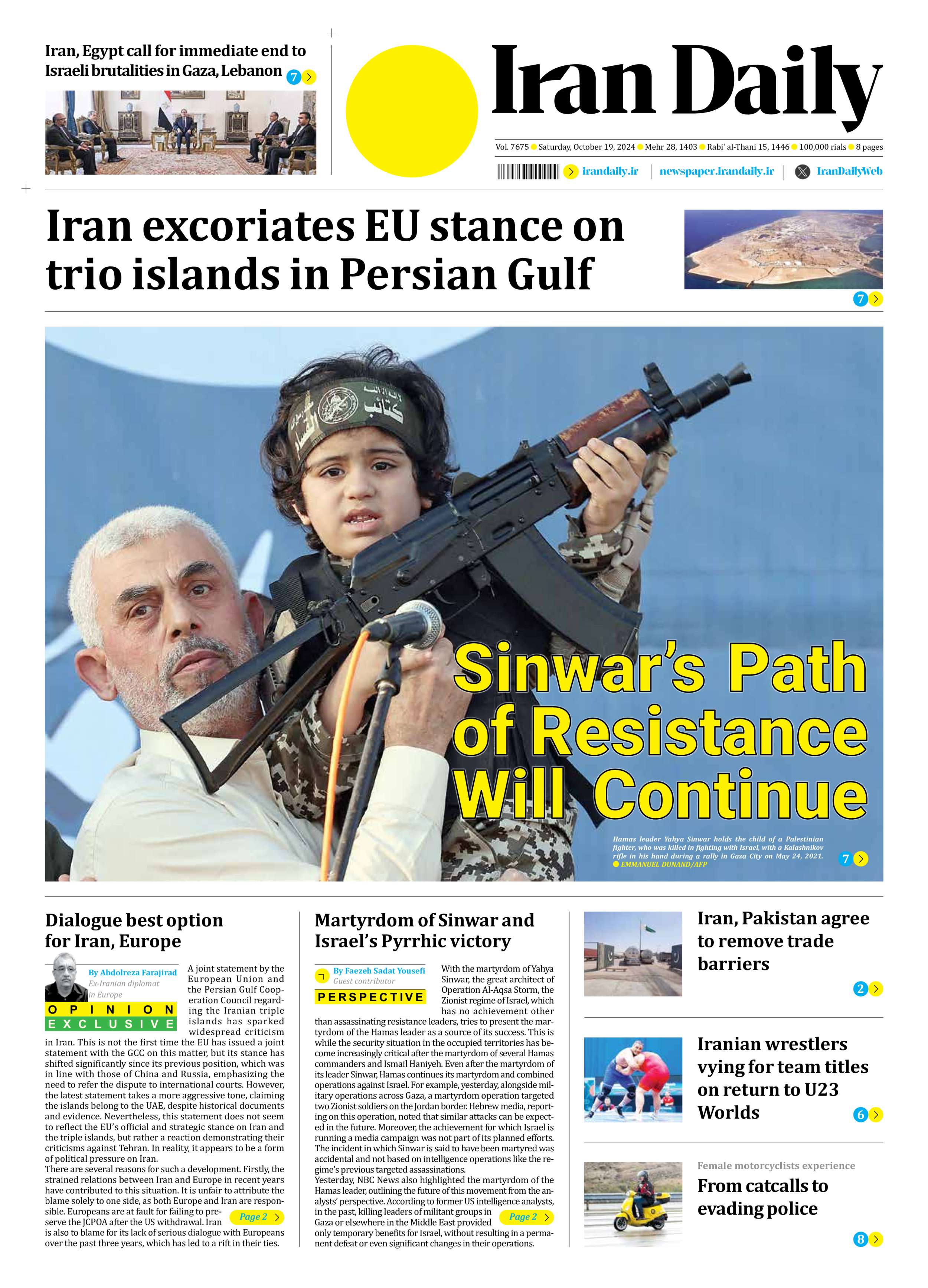
Dialogue best option for Iran, Europe
By Abdolreza Farajirad
Ex-Iranian diplomat
in Europe
A joint statement by the European Union and the Persian Gulf Cooperation Council regarding the Iranian triple islands has sparked widespread criticism in Iran. This is not the first time the EU has issued a joint statement with the GCC on this matter, but its stance has shifted significantly since its previous position, which was in line with those of China and Russia, emphasizing the need to refer the dispute to international courts. However, the latest statement takes a more aggressive tone, claiming the islands belong to the UAE, despite historical documents and evidence. Nevertheless, this statement does not seem to reflect the EU’s official and strategic stance on Iran and the triple islands, but rather a reaction demonstrating their criticisms against Tehran. In reality, it appears to be a form of political pressure on Iran.
There are several reasons for such a development. Firstly, the strained relations between Iran and Europe in recent years have contributed to this situation. It is unfair to attribute the blame solely to one side, as both Europe and Iran are responsible. Europeans are at fault for failing to preserve the JCPOA after the US withdrawal. Iran is also to blame for its lack of serious dialogue with Europeans over the past three years, which has led to a rift in their ties.
Page 2







